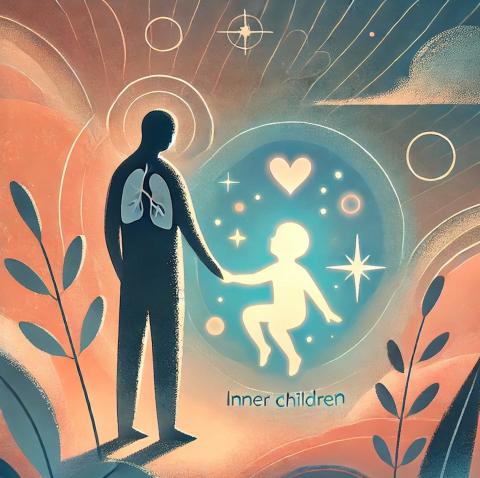
"The concept of the Child Within has been a part of our world culture for at least two thousand years," (Whitfield, 1987). Charles Whitfield, M.D., authored "Healing the Child Within: Discovery and Recovery for Adult Children of Dysfunctional Families. While formalized as a soft science through the world of psychotherapy, with figures such as Carl Jung, Emmet Fox, and Alice Miller, the concept of an "inner child" is quite spiritual, personal, and ancient.
"The Child Within refers to that part of each of us which is ultimately alive, energetic, creative, and fulfilled; it is our Real Self --- who we truly are," Whitfield explains (1987). He paints the picture of how the Real Self can become molded, deprived, and oppressed over time by our early developmental experiences and family traumas. As a result, we often live life as if it is caught on a loop, with choices and behaviors informed by what is "incomplete" and "unprocessed" from our childhood; in other words, we live from the victimhood stance of our inner child and experience difficulty in processing our emotions. In his book, he refers to this inverse as the "Co-Dependent Self."
By acknowledging the state of our Inner Children and how these wounds inform our current fulfillment or way of being, adults can resolve maladaptive patterns posed by Inner Child wounds, allowing their truest selves to thrive. While the Inner Whitfield explains that the Inner Child is never gone, rather, it becomes nourished and integrated responsibly with our lives and spiritual development.
Some Characteristics of the Real Self and the Co-Dependent Self
The Real Self:
Authentic Self, True Self
Genuine
Spontaneous
Expansive, Loving
Giving, Communicating
Accepting of Self and Others
Compassionate
Love Unconditionally
Feels feelings, including appropriate, spontaneous, and current anger
Assertive, Powerful in true sense
Intuitive
Ability to be childlike, play, and have fun
Vulnerable, Trusting
Enjoys being nurtured, Self-indulgent
Surrenders, Free to grow
Open to the unconscious
Remembers our Oneness
The Co-Dependent Self:
Unauthentic Self, False Self
Ungenuine, "as-if" personality
Plans and plods
Contracting, fearful, withholding
Envious, critical, idealized, perfectionist
Other-oriented, overly conforming
Loves conditionally
Denies or holds feelings, including anger and resentment
Aggressive, passive-aggressive
Rational, logical, over-developed
Avoids play and fun
Pretends to be strong, limited power
Distrusting, avoids being nurtured
Controls
Self-righteous
Blocks unconscious material
Forgets Oneness, feels separate
Tends to act out unconscious, painful patterns repeatedly
Public self
